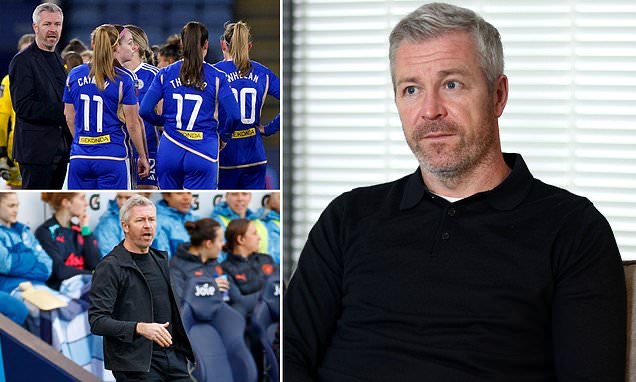Willie Kirk pauses for a moment before discussing his involvement in a relationship with one of his players during his tenure as manager of Leicester City. It has been six weeks since Kirk was terminated by the club following the discovery of the relationship, which continues to this day. His firing has sparked a broad discussion: Is it ever acceptable for a manager and a player to cross that boundary?
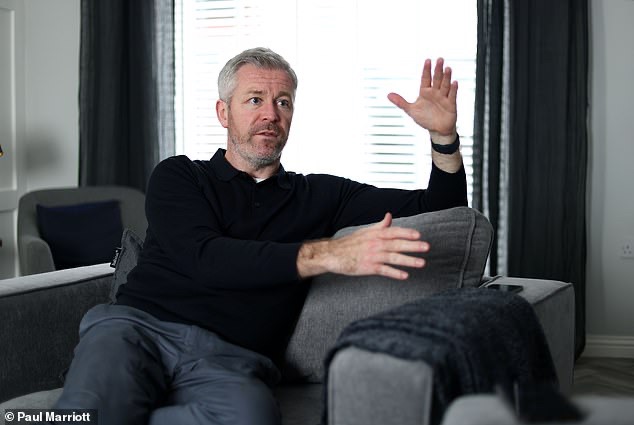
Kirk is not the only coach in women’s sports to have engaged in such relationships. Mail Sport is aware of several current and former managers who have had relationships with their players, although most of these cases cannot be reported due to legal constraints.
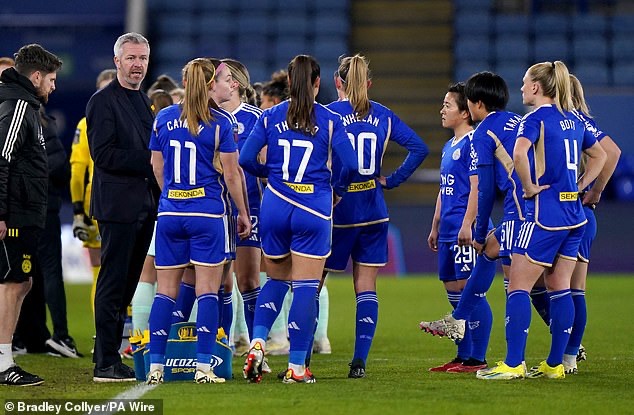
“There are several things I need to clarify,” Kirk begins. “Firstly, my wife and I have been separated for more than a year. I believe people are now labeling me as a bad coach, a bad husband, and a bad person.”
Kirk has spent the last 14 years in management within women’s football. His resume features Scottish Cup victories with Hibernian, reaching an FA Cup final with Everton, and achieving promotion with Bristol City.
Kirk initially joined Leicester as their director of football in July 2022, but stepped into the managerial role after Lydia Bedford was dismissed later that year. At that time, Leicester was at the bottom of the league with zero points after six matches. Under Kirk’s leadership, the team pulled off a significant turnaround.
The situation took an unexpected turn in the following months, and into the new season, when Kirk received an unsolicited advance. “One of the players contacted me outside of work to express their feelings for me,” Kirk recounts. “I immediately dismissed it as ridiculous and shut it down. That was that.”
Kirk recalls repeatedly rejecting further advances over the subsequent months. “I kept shutting it down, insisting it was never going to happen, citing the code of conduct,” he says.
However, the dynamic shifted when the player sustained an injury towards the end of the year. “I think that’s what made it feel justifiable to us,” Kirk explains.
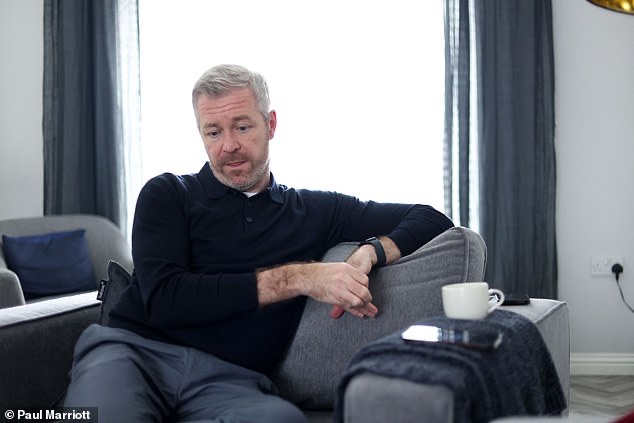
She sustained an injury towards the end of the year and was conducting her rehabilitation off-site. “Just before Christmas, I agreed to meet her on a personal level. Since she was injured and not available for selection, it didn’t interfere with my professional responsibilities,” Kirk explains. “Of course, I was trying to justify it to myself, which never made it right. After Christmas, we began seeing each other once a week; she would visit me or I would go to her place the following week.”
Kirk was aware that the relationship was unethical. “We would meet in secrecy, arriving and leaving under the cover of darkness, knowing it was wrong,” he admits.
During the February international break, their relationship took a decisive turn. “I planned a short trip to Milan, and she suggested we go together. Initially, I resisted, but eventually, we compromised on spending a couple of days there,” Kirk recalls. “We convinced ourselves it was feasible. We flew out on separate days and spent two nights in Italy, then returned on different flights.”
Upon returning, they both acknowledged the seriousness of their situation. “We realized it had gone too far and decided to end things until the season concluded, agreeing that one of us would leave the club.”
However, unbeknownst to Kirk, their relationship had already been discovered by an official at another Women’s Super League club, who reported him to Leicester. “I was called into a meeting where it was revealed a complaint had been filed against me. I was informed that the club’s lawyer and external legal counsel would initiate an investigation.”
The situation escalated rapidly. “As we approached the FA Cup match against Liverpool, just fifteen minutes before our final training session on Friday, I was summoned by the women’s director and the internal lawyer. I immediately knew the reason. They confronted me, already aware of the relationship and our trip to Italy, and that it had started just before Christmas.”
Kirk acknowledged the relationship and, following a three-week investigation, he was dismissed for gross misconduct, though his subsequent appeal was unsuccessful. The player involved remains with the club. “From the moment I admitted it, I was treated like a criminal,” Kirk reflects.
He expresses disappointment with how the club handled the situation. “I feel the club could have managed things better. There seemed to be a lack of consistency compared to previous investigations. It’s my fault, I should never have gone through with it. I was involved in establishing our code of conduct, I lived by it daily, and I tried to uphold our standards, so it’s absurd that I’m the one who broke it.”
Kirk also believes the way the matter was addressed led to unnecessary speculation and instability. “The way it was dealt with caused a lot of uncertainty and rumors. It didn’t help the players or the staff, and I think the impact is visible in our recent performances. We managed the Liverpool game, but since then, we’ve only drawn two out of the last seven games.”
He regrets not having the chance to explain his actions directly to the team and staff. “As tough as it might have been, I felt I deserved a chance to speak to the staff and players, to apologize and share my perspective in person. It might not have changed the outcome, but we’ll never know.”
Kirk isn’t seeking sympathy but shares the personal toll of the situation. “It’s been frustrating. Unfortunately, a lot of that frustration has turned into self-loathing. I’ve despised myself, the club, and at times, even resented the relationship, though it continues. This wasn’t a case of a manager abusing their power. This hate I’ve felt, it’s wrong, but it stems from being unable to discuss the situation openly.”
“I’m not a criminal. I haven’t committed a crime. I jeopardized an environment, and that’s significant. The club has made its own mistakes before; I came in and achieved what had seemed impossible, maintaining our WSL status after overcoming a huge points deficit. Now, after my mistake, they’ve turned their backs on me. I feel let down by how they’ve treated me.”
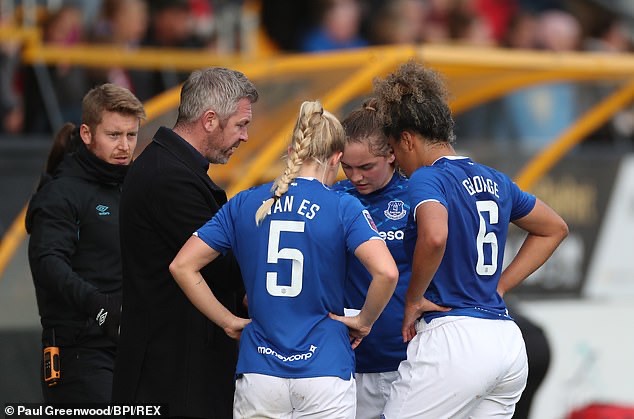
Before his departure from Leicester, Kirk was considered one of the most promising managers in the Women’s Super League (WSL). However, some argue he should not return to coaching in the women’s game. Questions linger about whether he could repeat his mistake and whether he can be trusted.
Kirk acknowledges these concerns. While securing a position in men’s football might be simpler, he is committed to remaining in the women’s game, where he has spent his career. “I’ve worked hard to establish myself in full-time football,” he explains. “I’ve turned down opportunities in men’s football to stay in the women’s game and contribute to its growth. I’ve invested so much in understanding the landscape and developing players globally.”
For Kirk, starting over in men’s football would feel like a fresh beginning, something he is reluctant to do. “After 14 years of building my reputation, it would be harsh to have it destroyed by one mistake,” he reflects. “It was my error, and I regret the decision deeply.”
He remains hopeful about his future. “I’m speaking to a couple of clubs outside the UK next week, so hopefully something comes of that. I’ve been one of the most successful managers outside the top four in terms of points per game over the last five years in the WSL. I’d like to think one mistake in 14 years isn’t something that will repeat.”
Despite the potential of having to consider roles in men’s football due to financial needs, Kirk is adamant about his desire to continue in the women’s game. “I have a young son and bills to pay, but my commitment is to the women’s game because of the effort I’ve put into promoting it.”
When asked about his regrets, Kirk is candid. “I regret the timing and the decision to enter into a relationship with a player. It’s a line that should not be crossed in elite sports, even though we know it often happens in everyday workplaces. However, I don’t regret the relationship itself.”
As discussions of other managers having relationships with players arise, Kirk does not wish to deflect blame but does feel somewhat scapegoated. “It does feel like I’ve taken the hit for others, but ultimately, I made a mistake and I’m facing the consequences. I take full responsibility for that.”
Kirk expresses some frustration, noting that relationships within the sport are not uncommon. “There are managers and assistant managers who have had relationships with players, and others with senior staff at clubs. There are conflicts of interest everywhere. Whether we need to overhaul how we address these issues from the ground up is up for debate, but doing so might leave many positions vacant across various roles in the sport.”
He acknowledges the complexity of defining what is acceptable and what is not. “It’s a topic that could be debated for a long time. I know I was in the wrong and I’ve been punished. I just need to draw a line there.”
While Kirk might not be the last manager to face dismissal for a relationship with a player, he hopes his experience serves as a cautionary tale. “I hope what happened to me acts as a wake-up call and shocks anyone currently involved in or considering such a relationship. If it does, then something positive will have come from my situation.”
